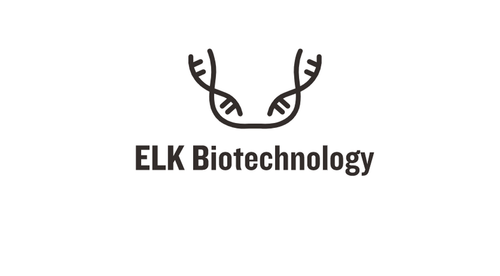Product Description
Human Twinfilin-1 (TWF1) ELISA Kit | AE12737HU | Abebio
Species Reactivity: Human (Homo sapiens)
Abbreviation: TWF1
Alternative Name: A6; MGC23788; MGC41876; PTK9; A6 protein tyrosine kinase|PTK9 protein tyrosine kinase 9|protein tyrosine kinase 9|twinfilin 1
Application: ELISA
Range: 0.156-10 ng/mL
Sensitivity: 0.054 ng/mL
Intra-Assay: ≤4.9%
Inter-Assay: ≤8.8%
Recovery: 0, 97
Sample Type: Serum, Plasma, Other biological fluids
Detection Method: Sandwich
Analysis Method : Quantitive
Test Principale: This assay employs a two-site sandwich ELISA to quantitate TWF1 in samples. An antibody specific for TWF1 has been pre-coated onto a microplate. Standards and samples are pipetted into the wells and anyTWF1 present is bound by the immobilized antibody. After removing any unbound substances, a biotin-conjugated antibody specific for TWF1 is added to the wells. After washing, Streptavidin conjugated Horseradish Peroxidase (HRP) is added to the wells. Following a wash to remove any unbound avidin-enzyme reagent, a substrate solution is added to the wells and color develops in proportion to the amount of TWF1 bound in the initial step. The color development is stopped and the intensity of the color is measured.
Product Overview: TWF1 encodes twinfilin, an actin monomer-binding protein conserved from yeast to mammals. Studies of the mouse counterpart suggest that this protein may be an actin monomer-binding protein, and its localization to cortical G-actin-rich structures may be regulated by the small GTPase RAC1. The deduced 350-amino acid protein has a calculated molecular mass of 40.3 kD. TWF1 has an N-myristoylation site and several sites for threonine, serine, and tyrosine phosphorylation, but it lacks a conserved protein kinase catalytic domain. Northern blot analysis detected a 3.4-kb transcript that was highly expressed in colon, testis, uterus, ovary, prostate, and lung. Lower expression was detected in brain, bladder, and heart, and no expression was detected in liver.
Stability: The stability of ELISA kit is determined by the loss rate of activity. The loss rate of this kit is less than 5% within the expiration date under appropriate storage condition. The loss rate was determined by accelerated thermal degradation test. Keep the kit at 37°C for 4 and 7 days, and compare O.D.values of the kit kept at 37°C with that of at recommended temperature. (referring from China Biological Products Standard, which was calculated by the Arrhenius equation. For ELISA kit, 4 days storage at 37°C can be considered as 6 months at 2 - 8°C, which means 7 days at 37°C equaling 12 months at 2 - 8°C) .
 Euro
Euro
 USD
USD
 British Pound
British Pound
 NULL
NULL












